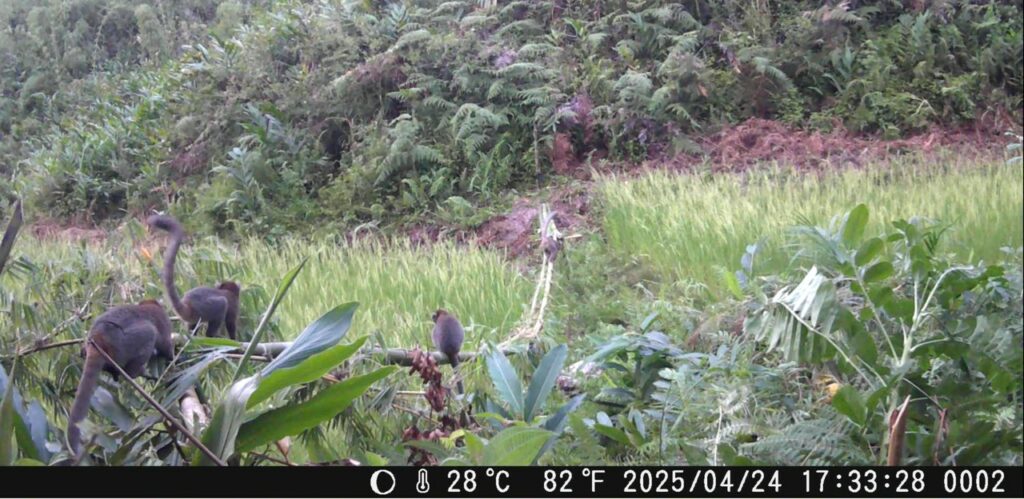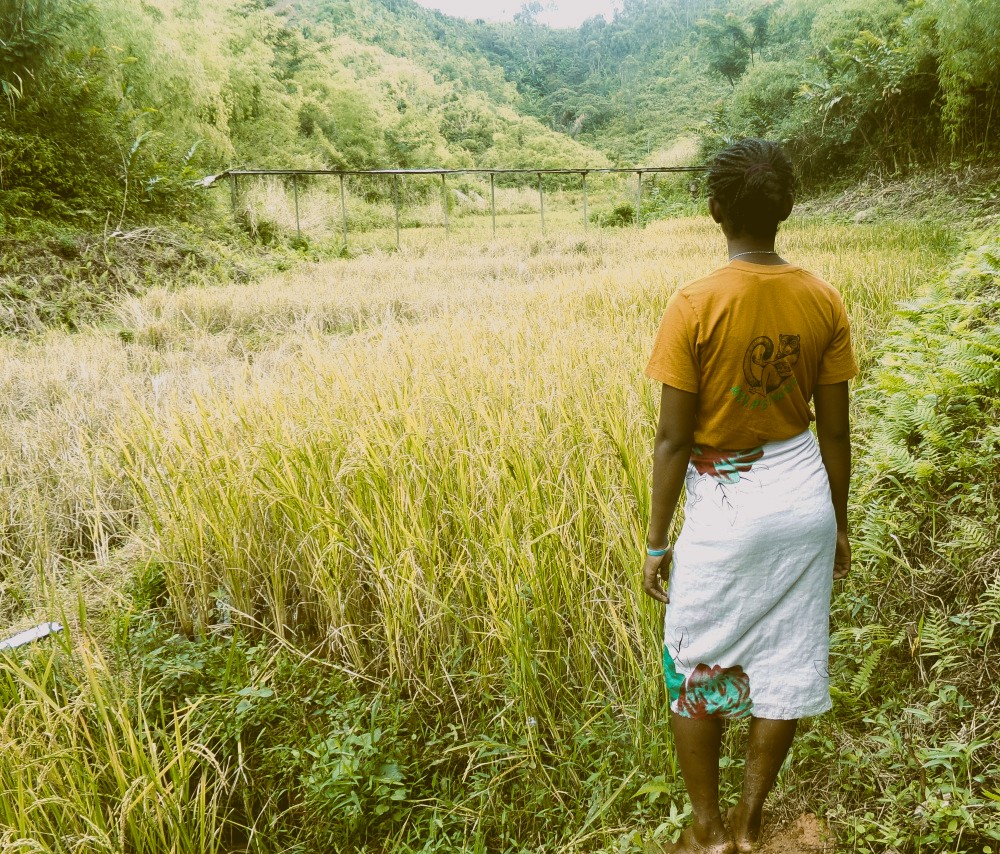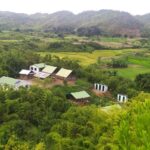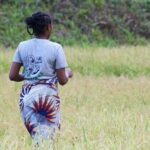It was in 2019 that we launched the pilot project to guard rice fields, in response to increasing tensions between farmers and greater bamboo lemurs. Although these lemurs consume rice only occasionally—less than 1% of their diet—the damage they could inflict was significant, sometimes destroying up to 80% of a harvest. These incursions threatened both the food security of local communities and the long-term success of ongoing conservation efforts.
A Simple, Adapted, and Sustainable System
The principle of the guarding system is as simple as it is pragmatic: teams of guards take turns monitoring the rice fields day and night during the two annual rice-growing seasons:
- The off-season campaign (October to January/February)
- The main season (March to June), when all rice fields are cultivated
Since farmers do not all plant at the same time, the guarding effort is maintained continuously for about six months.
The system is reinforced by:
– Clearing operations around rice fields, which improve visibility and make it easier for guards to monitor;
– The construction of footbridges at the usual crossing points of greater bamboo lemurs, allowing them to move between forest patches without damaging the crops and enabling guards to intervene without risking the separation of group members.

Currently, 168 guards are mobilized under the supervision of an IMPACT Madagascar field officer.

Tangible and Measurable Results
Data collected since 2022 clearly demonstrate the positive, direct impact of this system:
| Period | Intrusion attempts | Successful intrusions | Repelled without damage | With damage | % with damage |
|---|---|---|---|---|---|
| Apr–Jun 2022 | – | 417 | 417 (<1% damage) | 0 | – |
| Nov 2022 – Feb 2023 | 1116 | 122 | 115 (<1% damage) | 7 | 1–5% |
| Apr–Jun 2023 | 1081 | 40 | 30 (<0.1% damage) | 10 | 0.5–2% |
| Nov 2023 – Feb 2024 | 900 | 18 | 18 (<1% damage) | 0 | – |
| Apr–Jun 2024 | 1406 | 95 | 92 (<0.01% damage) | 3 | 1–2% |
| Nov 2024 – Feb 2025 | 424 | 9 | 6 | 3 | <1% |
Since 2022, more than 5,000 intrusion attempts have been recorded. The vast majority have been successfully repelled with no damage to crops. Only a few isolated incidents resulted in minor losses.
A Sustainable Coexistence Restored
Thanks to this system, conflicts between farmers and lemurs have been resolved. The crops are now effectively protected, and the mere presence of guards is often enough to repel incursions. In a context of declining agricultural yields due to climate change, securing harvests is more valuable than ever.
The system is now supported by local communities, reflecting both its effectiveness and the strong ownership of the project on the ground.
This initiative is a concrete example of successful coexistence between humans and wildlife—a success made possible by the constant commitment of our partners.
Crop guarding partners: Cotswold Wildlife Park, Palmyre Conservation, Fondation Audemars-Piguet pour les Arbres, Fondation Le PAL Nature, AFdPZ, Pure Trade, Sainte-Croix Biodiversité, Parc de Clères, SaveOurSpecies IUCN, Comité français de l’UICN – ProBioDev, Univet Nature, Boissière-Mervent Conservation, Conservatoire pour la Protection des Primates, Parc animalier de la Barben







